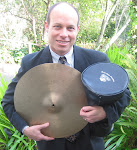I rarely watch new movies, unmoved by the current excesses of sex and violence that seem to be matched to the tastes of Caligula, but finally, Hollywood has released a movie that is as engaging and intellectually stimulating as the writings of Winston Churchill or Edmund Morris. That movie is Lincoln.
I knew the movie would be good but was worried about how it would portray the war and all its gore. I was relieved to find that the fighting was de-emphasized. Even Lincoln's assassination at Ford's theater was only announced rather than acted out on screen. The war's violence did not haunt me. Instead, hours after viewing the film, I still felt inspired by Lincoln's leadership, his decision-making process, and his greatness of character.
I must give credit to Dr. Jane who invited me to go with her and her mother who saw the movie first and knew it would be perfect for me. Dr. Jane bought our tickets for the price of a glass of wine--a bargain I couldn't refuse. As a history teacher I was well aware of what the movie would be about-- a screen play based on Team of Rivals: The political Genius of Abraham Lincoln-- and how Lincoln sought after his cabinet's counsel, managed the great egos of the men involved, and, against the odds, defeated the Confederate armies and passed the Thirteenth Amendment barring slavery. For a specific description see David Wolfford's wonderful review here.
I hope my fellow movie goers will forgive me for whispering excitedly in Dr. Jane's ear, "There's William Seward." "Goodness, it's Edwin Stanton". "It's radical Republican Thaddeus Stevens". "That little guy is Confederate Vice President Stephens." "Do you recognize Robert E. Lee on horseback?" The actors looked uncannily like their namesakes pictured in the history books. The actors also portrayed their characters' personalities accurately. Seward was confident and full of himself. Stanton was serious in purpose and impetuous. Lincoln and Grant were both rough-hewn and honest.
The movie revolved around the political maneuvering in passing the Thirteenth Amendment. It was quite entertaining watching the anti-Amendment Democrats get bribed (with political patronage), bullied, cajoled, or persuaded to vote for the Amendment. Interwoven with the political fight over the Amendment were the themes of prosecution of the war and prospects for a negotiated peace--these factors determined whether the Thirteenth Amendment would pass on schedule.
This movie is about personal and political relationships--Lincoln's relationships with his wife and children, his cabinet, his party, the opposition party, slaves and freedmen, the voters, and the public. It is a successful movie because people can be fascinating if you let them be, and Lincoln does.
I knew the movie would be good but was worried about how it would portray the war and all its gore. I was relieved to find that the fighting was de-emphasized. Even Lincoln's assassination at Ford's theater was only announced rather than acted out on screen. The war's violence did not haunt me. Instead, hours after viewing the film, I still felt inspired by Lincoln's leadership, his decision-making process, and his greatness of character.
I must give credit to Dr. Jane who invited me to go with her and her mother who saw the movie first and knew it would be perfect for me. Dr. Jane bought our tickets for the price of a glass of wine--a bargain I couldn't refuse. As a history teacher I was well aware of what the movie would be about-- a screen play based on Team of Rivals: The political Genius of Abraham Lincoln-- and how Lincoln sought after his cabinet's counsel, managed the great egos of the men involved, and, against the odds, defeated the Confederate armies and passed the Thirteenth Amendment barring slavery. For a specific description see David Wolfford's wonderful review here.
I hope my fellow movie goers will forgive me for whispering excitedly in Dr. Jane's ear, "There's William Seward." "Goodness, it's Edwin Stanton". "It's radical Republican Thaddeus Stevens". "That little guy is Confederate Vice President Stephens." "Do you recognize Robert E. Lee on horseback?" The actors looked uncannily like their namesakes pictured in the history books. The actors also portrayed their characters' personalities accurately. Seward was confident and full of himself. Stanton was serious in purpose and impetuous. Lincoln and Grant were both rough-hewn and honest.
The movie revolved around the political maneuvering in passing the Thirteenth Amendment. It was quite entertaining watching the anti-Amendment Democrats get bribed (with political patronage), bullied, cajoled, or persuaded to vote for the Amendment. Interwoven with the political fight over the Amendment were the themes of prosecution of the war and prospects for a negotiated peace--these factors determined whether the Thirteenth Amendment would pass on schedule.
This movie is about personal and political relationships--Lincoln's relationships with his wife and children, his cabinet, his party, the opposition party, slaves and freedmen, the voters, and the public. It is a successful movie because people can be fascinating if you let them be, and Lincoln does.





Love the review
ReplyDelete